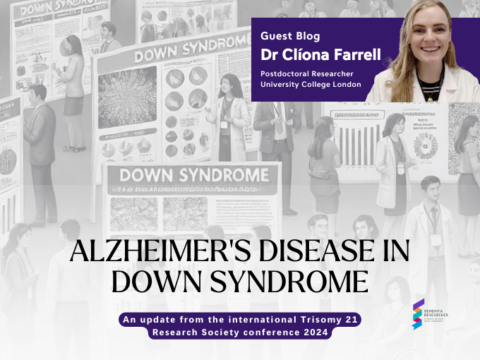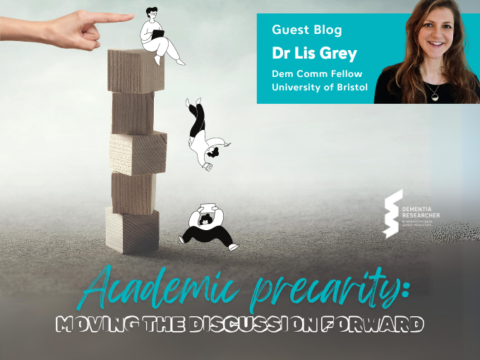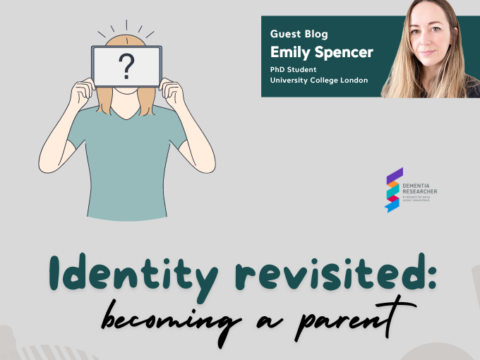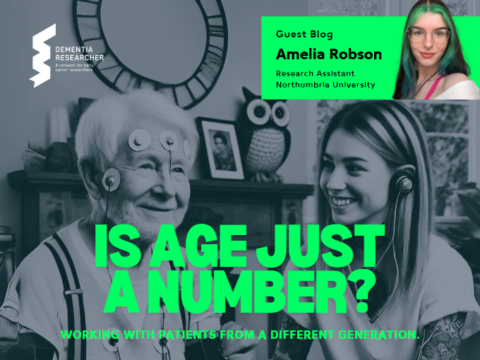In April 2024 I had the opportunity to travel all the way from Melbourne, Australia, to beautiful Krakow, Poland, to attend the Alzheimer’s Disease International Conference. This was my first time attending, so I was very excited! The major dementia research conferences are in America and Europe, and the travel from faraway Australia is very expensive.
I was very fortunate to have been awarded a travel grant from the Dementia Australia Research Foundation to attend and present. The travel grant covered the cost of flights, accommodation and subsistence for myself and Natalie Ive, who sits on Dementia Australia’s Advisory Committee and is one of four Dementia Advocates who have guided our research project about dementia-friendly eyecare. It also covered some virtual registrations for the other Advocates to tune in online!
Alzheimer’s Disease International Conference happens every two years. Natalie recommended this conference to me because she had attended the 2022 conference in London and felt it was very inclusive and welcoming for people with lived experience of dementia and dementia care. She was right! One of the things I really enjoyed about the event was that it seemed to achieve a balance between normalising, yet also celebrating, the presence of people with lived experience in the conference programme.
Quite a few Australian Dementia Advocates presented – I enjoyed hearing from Bill Yeates about how allied health professionals had supported his rehabilitation and re-enablement goals, culminating in his participation in the Surf Lifesaving Championships. Natalie shared her lived experience with primary progressive aphasia, and the fantastic new PPA guide she had been involved with developing at the Australian Aphasia Association, working with speech and language therapists. Bobby Redman presented on the importance of having ALICE in the room at support organisations like Dementia Australia – Authentic, Living Experience, Inclusion, Collaboration and Empowering. This event also saw the launch of ADI’s Expert Panel, featuring a range of people from different countries!
It was wonderful to see the energy shared by people with lived experience, when in an environment that accommodates and welcomes them all. In the lunch breaks, too, I got to see people with lived experience, scientists and community supporters all eating and chatting together. I gave my dementia-friendly eyecare booklets to so many different people, from Irish nuns, to Scottish dementia advocates, to a member of the retinue supporting Princess Muna Al Hussein of Jordan! That seems, to me, to be how it should be.
I really enjoyed the energy of the event as a whole! We sang, we danced, we laughed, we connected, we shared. There was lots of pause for thought around dementia risk reduction approaches – balancing tailored and individualized programmes such as FINGERS against population-level public health promotion initiatives. All these approaches need a careful and culturally sensitive implementation. Alongside this, however, was also a perhaps renewed focus on rehabilitation and re-ablement, calling back to the 2022 ADI report about the importance and value of post-diagnosis support. From the lived experience perspective, there still seems to be a lot of work for us all to do in reducing the stigma around dementia. This certainly was something that resonated with me, thinking about our research and the reasons why people with dementia may not choose to share their diagnosis with their optometrist. It is difficult for such a huge and diverse organization such as ADI to keep all these different topics in focus, but as an allied health professional I felt there was plenty of ‘food’ for me!
The conference was an opportunity to share our work and resources about dementia-friendly eyecare, which had just been accepted to the WHO Global Dementia Observatory Knowledge Exchange Platform, so it was very timely. But the event was so much more than that. I had the opportunity to reconnect with the UK dementia researcher community, which was simply lovely. I could meet in person with people I’d only spoken to on Twitter or over email, such as Laura Braithwaite, a speech and language therapist who had been involved in developing the AHP Dementia Framework for Wales, and Prof Elaine Hunter, who is behind so many amazing Scottish AHP initiatives in post-diagnosis support. Even though I moved away from the UK in 2020, I had been able to stay in touch via the WhatsApp group, and was immediately adopted by a crew from across UCL, Kent, Plymouth and many other universities for night-time Krakow adventures – and I wasn’t the only one! There were a few of us who reflected on how the NIHR Dementia Researcher community had helped those of us who had travelled solo to the conference to feel included and less isolated. Dementia research is a small yet growing world that is reaching more and more specialty fields, like my own in eyecare, so you do end up in these situations where you go to conferences alone. It can be daunting, but I found ADI to be so welcoming, encompassing and inspiring – being surrounded by “your people” (and everyone had so much passion!) is such an empowering feeling.
I left the conference with lots of lovely comments from people about the talk that Natalie and I delivered together in the Education session on the last day. Natalie shared why good eyesight matters to her, and why everyone involved in dementia care should understand this, and ended with a call to arms for everyone living with dementia to be supported to have regular eye tests, just like bowel cancer screening. I then picked up with some research background to highlight the higher prevalence of preventable sight loss experienced by people living with dementia, and how we have developed a training course for optometrists about dementia-friendly eyecare. The course aims to upskill optometrist knowledge of dementia, and ability to adapt the eye test and eye care advice they provide to accommodate things such as cognitive fatigue, communication difficulties and changed or responsive behaviours.
The whole project would not be what it is without the input from all the Dementia Advocates guiding it from the start, and I was so grateful to have the opportunity through Dementia Australia Research Foundation to present this work with Natalie, and both share and celebrate everything the team had achieved with an international audience. The talk prompted some people to share stories with Natalie and I, and it certainly reinforced that there is a lot still to do to help make dementia-friendly eyecare happen everywhere. ADI was an inclusive and invigorating experience, and I went away feeling so much more connected to the dementia research community across the world than I had when I first arrived! Hopefully I will be able to return in 2026, in France, to join in with the conference again.
See more news from the conference #ADI2024

Dr Marianne Coleman
Author
Dr Marianne Coleman is an Orthoptist and Clinical Eyecare Research Fellow at the University of Melbourne & Australian College of Optometry (National Vision Research Institute). Marianne’s research focusses on visual function and access to eyecare for people living with dementia. With a background working within the NHS, she notices that she saw lots of older adults, but few with dementia, and this inspired her to try and understand why.

 Print This Post
Print This Post




